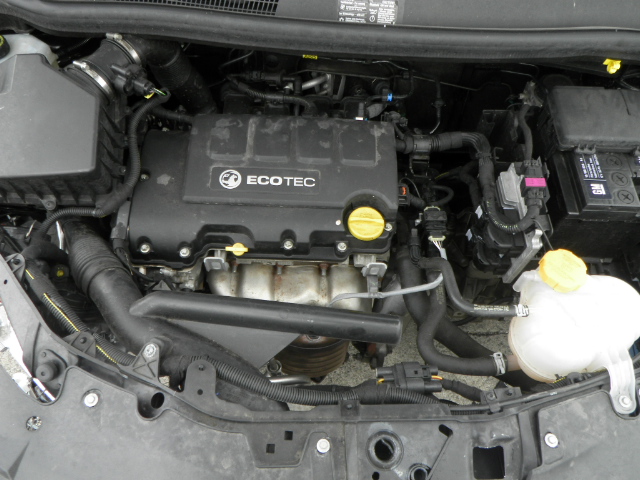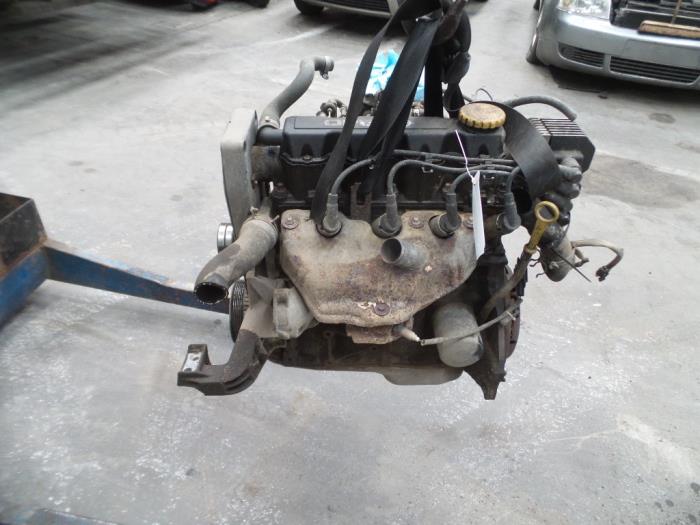Opel Corsa 1.4 Engine Price Break Down: Explore Top Quality Auto Components Selections
Opel Corsa 1.4 Engine Price Break Down: Explore Top Quality Auto Components Selections
Blog Article
Engine Acquiring Specialist Tips on Picking the Right Engine for Your Specific Needs
Selecting the appropriate engine for your details demands entails an intricate interplay of factors that exceed mere horsepower figures. From power result to sustain performance, the decision-making procedure can be discouraging. Understanding the nuances of engine kinds, dimensions, and their compatibility with your automobile is crucial. There are experienced pointers that can aid browse this terrain with confidence. By diving right into the ins and outs of power versus effectiveness, examining fuel ratings, and budgeting for lasting prices, one can genuinely optimize their engine selection.
Power Vs. Effectiveness: Finding the Equilibrium
When choosing an engine, it is crucial to strike an equilibrium between power and performance to satisfy your specific requirements properly. Power refers to the engine's capacity to create power for propulsion, figuring out factors like velocity, hauling capability, and overall efficiency - Opel Corsa 1.4 Engine Price. On the various other hand, effectiveness associates with exactly how well the engine makes use of fuel to generate power, influencing factors such as gas economy and environmental kindness
Achieving the ideal balance in between power and efficiency is vital because an engine that is as well effective might consume extreme gas, leading to higher operating prices and unnecessary strain on the atmosphere. Alternatively, an engine that focuses on effectiveness over power might lead to slow-moving performance, especially in demanding circumstances like lugging hefty loads or driving uphill.
To make an educated decision, take into consideration variables such as your normal driving problems, the designated use the lorry, and your individual preferences. By evaluating your needs and concerns, you can choose an engine that strikes the ideal equilibrium between power and effectiveness, making certain ideal performance while lessening environmental impact and operating expenses.
Comprehending Engine Dimension and Type
To further refine the selection process of an engine that strikes the optimal balance between power and performance, it is necessary to dive right into the ins and outs of comprehending engine size and type. Engine size describes the overall quantity of air and fuel that can be pushed through the engine cyndrical tubes. It is typically measured in litres or cubic centimeters. Larger engine sizes typically result in more power result however can likewise result in decreased gas effectiveness. On the other hand, smaller engine dimensions are commonly a lot more fuel-efficient but may compromise some power.
Additionally, engine kind plays a vital function in figuring out the efficiency attributes of an engine. Usual engine kinds include inline engines, V engines, and rotating engines, each with its special advantages and downsides. The engine type affects aspects such as the engine's size, weight circulation, and power delivery. Understanding the interplay in between engine size and kind is important in picking an engine that aligns with your certain requirements and top priorities, whether it be power, effectiveness, or an equilibrium of both.

Consider Your Vehicle's Needs
Considering your lorry's needs is an essential action in the engine option procedure to make certain ideal efficiency and capability. It is necessary to examine elements such as the planned use the automobile, its weight, pulling capacity, and gas effectiveness demands. If you are looking for an engine for a durable vehicle that will be utilized for towing, you will certainly need a powerful engine with high torque capacities. On the other hand, if you are picking an engine for a compact auto mainly made use of for city travelling, fuel effectiveness might be a more essential element to think about.
If you regularly drive in mountainous or sloping locations, a robust engine with good climbing up power will certainly be needed. By lining up the engine specifications with your vehicle's needs, you can make sure that your vehicle runs effectively and additional hints satisfies your performance assumptions.
Examining Fuel Efficiency Rankings
Assessing gas effectiveness ratings is an essential facet of choosing the best engine for your vehicle, making certain cost financial savings and environmental sustainability. Fuel effectiveness ratings, commonly determined in miles per gallon (MPG) for gasoline engines or kilowatt-hours per 100 miles (kWh/100 miles) for electrical engines, suggest exactly how much a car can travel on a specific quantity of fuel or electricity. Greater MPG or lower kWh/100 miles worths represent extra efficient engines, converting to decreased gas costs and reduced carbon emissions.
When examining fuel effectiveness scores, consider your driving habits and requirements. A very fuel-efficient engine can result in considerable savings over time if you commute long ranges daily. Furthermore, compare different engine alternatives within the exact same vehicle class to recognize one of the most economical selection. Factors such as engine dimension, weight, aerodynamics, and crossbreed or electrical capacities can all influence fuel performance.
Budgeting for Long-Term Expenses
Purposefully planning for long-term expenses is imperative when selecting an engine, guaranteeing monetary sustainability over the car's life-span. While the first acquisition rate of an engine is a significant factor, it is crucial to consider the long-term costs connected with maintenance, repair services, and gas usage. Selecting a much more fuel-efficient engine may have a higher upfront cost yet can cause significant financial savings gradually. Routine maintenance, such as oil changes, filter substitutes, and tune-ups, is vital to maintain the engine running efficiently and effectively, decreasing the risk of pricey repair services down the line.
Additionally, researching the accessibility and expense of substitute components for the selected engine is important in budget plan preparation. news By meticulously budgeting for these long-lasting expenses and factoring them into the decision-making process, individuals can choose an engine that not just fulfills their prompt demands yet also remains affordable throughout its lifespan.
Verdict
In verdict, picking the appropriate engine for your certain demands calls for balancing power and effectiveness, understanding engine dimension and kind, considering your car's needs, evaluating gas efficiency ratings, and budgeting for lasting prices. By thoroughly considering these variables, you can make sure that you select an engine that meets your demands and supplies optimum efficiency for your car.
To even more fine-tune the selection process of an engine that strikes the optimal balance between power and effectiveness, it is important to dive into the complexities of understanding engine dimension and type. Engine size refers click for source to the total quantity of air and fuel that can be pressed with the engine cylinders. Usual engine types consist of inline engines, V engines, and rotary engines, each with its unique advantages and disadvantages. Understanding the interaction between engine dimension and type is crucial in selecting an engine that straightens with your particular demands and concerns, whether it be power, efficiency, or an equilibrium of both.

Report this page